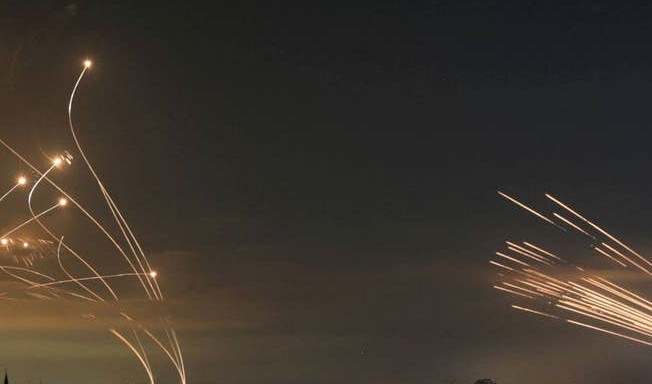The informal foreign affairs council meeting ended on Tuesday with a statement calling for an immediate halt to the fighting and the implementation of a ceasefire to be followed in next phase by the potential resumption of the peace process and the restoration of a political horizon.
The meeting took place after some delay, after the UN Security Council meeting on Sunday. The lead spokesperson for EU foreign affairs claimed that the meeting had been convened at the earliest possible opportunity to enable all foreign ministers to attend the meeting. In fact, some countries were represented by deputy ministers of foreign affairs.
EU’s foreign policy chief, High Representative Josep Borrell, said at the brief press conference after the Council meeting on Tuesday evening (18 May) that he was quite satisfied with the outcome of the meeting. The meeting was intended to coordinate the positions of the EU member states.
According to Borrell, 26 of the 27 member states supported his “overall sense and take away” from the discussions. The first priority is to implement the ceasefire so that the high toll of civilian casualties, in particular in Gaza, will stop. The high death toll is unacceptable, according to Borrell. The more the fighting continues, the share of civilians among the overall death toll risks to increase.
His lead spokesperson declined to specify if there is any acceptable “balance” of casualties. “Even the loss of one human life is a tragedy and unacceptable.”
Borrell underlined that EU fully supports Israel’s right to defend itself, provided that its response against Hamas’ indiscriminate rocket barrages against civilian targets in Israel is proportionate and in line with international humanitarian law.
The EU stresses the need for protection of civilians at all times. Borrell supported the right of both Israelis and Palestinians to live in security and denounced the planned evictions in a Palestinian neighbourhood in East Jerusalem as illegal.
As regards the future, once a ceasefire is implemented, he said that status quo is not an option. “There is a need to engage with both parties, build confidence measures and explore possibilities to restart the peace process”. He did not address the issue whether Hamas, a terrorist organisation according to EU and the international community, will be included in the political process.
The main reason for an immediate ceasefire is to save human lives. Another reason is that both Hamas and Israel have achieved their political objectives in the current round of hostilities and could be expected by now to look for an exit. Hamas has emerged as the “defender of Jerusalem” and the Israeli caretaker government has spoiled an attempt to form an alternative government.
Why did the fighting start?
The sudden escalation of hostilities between the Hamas-ruled Gaza Strip and Israel started after the cancellation by the Palestinian Authority in the West Bank of long overdue elections which would have favoured Hamas. Israel did not allow the elections to take place in East Jerusalem and did not reply to requests from the EU to send election observers.
Tension was already high following the outbreak of violent demonstrations in Jerusalem during the holy Muslim month of Ramadan when far-right Israelis and Palestinians clashed in a Palestinian neighbourhood over disputed apartments.
To make things worse, Israeli police acted heavy-handed and put fences at the Damascus Gate square leading into the old city of Jerusalem during the Muslim prayers in the mosques at the Temple Mount/al-Haram al-Sharif.
The fences were eventually removed but in another provocative act the Israeli government allowed a flag parade by far-right Israelis to take place on Jerusalem Day on Monday last week (10 May) and to enter the Old City through another gate. For the Palestinians, this was seen as threat against the mosques on the Temple Mount. Hamas framed its launch of rockets against Israel as a battle for Jerusalem.
For Hamas it was a golden opportunity to rally Palestinian support in the occupied territories and inside Israel and a pretext to launch rocket attacks against southern and central Israel. If Palestinian elections would be held in the near future, Hamas would emerge as victorious at the expense of Palestinian Authority President Mahmud Abbas.
The pretext was unwittingly given by the Israeli government by its mismanagement of the situation in East Jerusalem during Ramadan which played into the hands of Hamas. The result in Israel’s current political crisis was that the promising negotiations last week to form a new government of change, including both Jewish and Arab parties, collapsed after the fighting had started.
Prime-Minister Benyamin Netanyahu probably remains in a power in a caretaker government until elections for the fifth time in 2,5 years.
Hamas benefits also from the riots that erupted inside Israel, threatening the fragile Arab-Jewish co-existence which has taken form in recent years. The riots were carried out by far-right Jewish extremists and Arab criminal gangs and radicalised youth, and included stone-throwing on neighbours, live fire, arson and even lynching. Hundreds of Arab and Jewish rioters have been arrested.
This is a more worrying development than the rocket attacks from Gaza and would require the undivided attention by the government and civil society in both communities. During the coronavirus crisis, Jewish and Arab health care staff fought together against a common enemy and Israel managed to return to what seemed as normal life after a successful vaccination programme.
The Brussels Times

